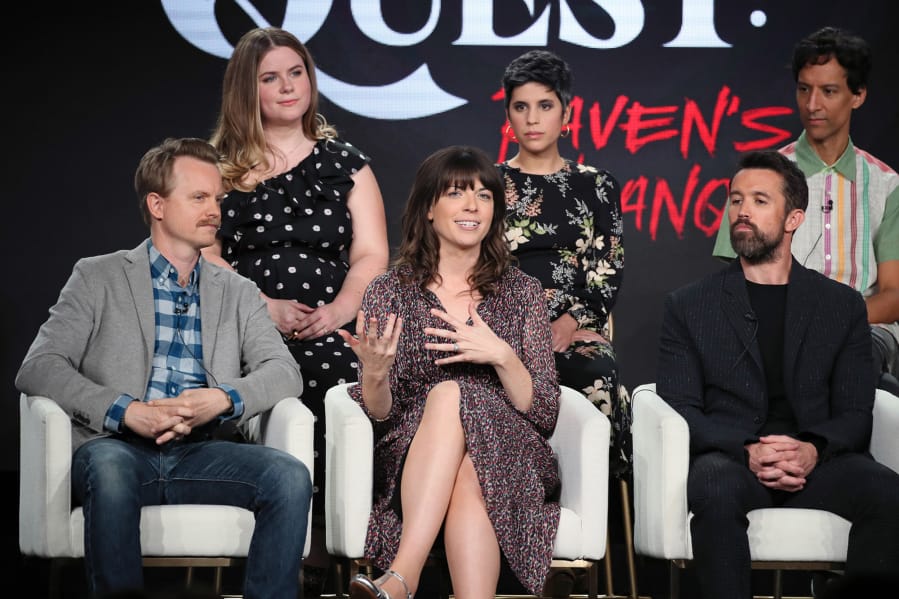The opening moments of “Mythic Quest: Raven’s Banquet,” now streaming on Apple TV+, put the spotlight on the video game industry’s inferiority complex.
A trailer for the show’s fictional game launches the series, boasting about the medium’s importance as much as it does the product it aims to sell. Global gaming revenue, the hyperbolic game teaser argues, towers over other forms of pop art.
Then the clip zeroes in on Ian Grimm, the game developer portrayed by showrunner and actor Rob McElhenney. Here, the voiceover echoes a long-standing insecurity of the gaming industry, which hasn’t always been taken as seriously as its cinematic peers. “When we think of visionary, world-building artists, instead of just Spielberg, Lucas and Cameron, why not think Grimm?”
“Mythic Quest” spends the next 30 minutes unpacking exactly that, bringing into mainstream discourse a phrase from the game universe: TTP, or “time to penis,” a reference to how quickly a player will use game development tools, in this case a shovel, to craft digital genitalia.



